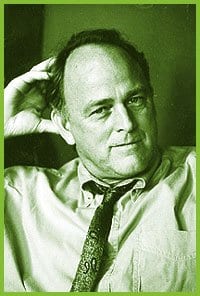There’s nothing like travel to give you a different perspective. Perhaps it’s the distance or the dislocation when you are outside of your culture. I was at the end of a visit to Afghanistan, staying in a guesthouse. The concerns about security confined me to quarters, so my evenings focused on the BBC News on TV.
Probably had I been in Canada, the item would have been a throw-away piece, one that would never have caught my attention. Certainly the person at the centre of the news story was unknown to me – Rocco Buttiglione. (I wondered if I had heard his name right. There was a certain irony to it given his point of view.) He was Italy’s nomination to become a European Union commissioner.
Buttiglione equates being gay with sinfulness, drawing his views on homosexuality from the Bible. The reporter said that the Italian politician had been outspoken (another incongruous use of words) about his beliefs, as he has been about women’s place in society.
Having been raised Catholic, I am all too aware of the emphasis placed on the inherent sinfulness of mankind and the role of women. Not having practiced my religion for decades (although still feeling the pull of it at times such as Christmas), the concepts of sin and defined gender roles seem like relics held over from centuries of societal control and oppression. While I do believe in the concept of morality, I wonder what gives a particular belief the right to decide that being gay is immoral and that women should remain chattels. Why do such views remain so entrenched?
A few days later, I was in London for meetings prior to landing back in Canada. Again, I watched BBC on the TV in the hotel. Italy, bowing to mounting protests about the nomination of Buttigli-one, had announced it had withdrawn his candidacy. By the time I had reached England’s shores, the story was already relegated to the old news basket.
Now, other new items were filling up the timeslots. The lead one covered the murder of David Morley by young thugs in the early morning hours. He had been in a park by the Thames. Hmm, I thought, sounds like a classic case of gay bashing.
Sure enough, the following day London police announced that the murdered man was a gay bartender from a club in Soho. He had survived an anti-gay bomb attack on his club in 1999. That act had killed three people and injured 70. This time, Morley just happened to be talking to acquaintances on his way home.
The juxtaposition of the Buttiglione story and the killing left me wondering. Do people such as Buttiglione create a homophobic environment that fosters attacks, such as the one of the hoodlums on Morley? Although the two stories took place in two separate countries and are not connected, questions kept nagging at me. Are there English public figures that air equally homophobic views? Could they be responsible for the 10 percent increase in hate crimes in London over the past year, as was also mentioned in the murder coverage?
The other item, the one that took up most of the media coverage, was the impending presidential election in the United States. Polls the day before the election had suggested the race would be a cliffhanger. But on the day of voting, speculation was rife about the imminent result. There had been a stronger than predicted turnout. Surely, the pundits said, this factor meant a vote for change. Only it didn’t.
The political analysts, always ready to pronounce quickly, said the large numbers of unplanned voters were largely men who supported Bush’s opposition to gay marriage and his refusal of a woman’s right to reproductive choice. Bush had mobilized the Christian right who held strong views on traditional marriage.
Perhaps it was because the stores in London had begun to put up their Christmas decorations. Maybe it was because at the centre of Christmas is what we Catholics called the Holy Family. This led me to wonder about the view of traditional marriage held by these Bush supporters.
When you think about it, the family of Jesus was anything but traditional. Joseph was much older than Mary. She was impregnated not by him but by a symbolic dove – the Holy Spirit. Joseph was, at least initially, bewildered by his intended bride’s condition and the shame it brought on him. According to doctrine – at least the Roman one – Mary and Joseph did not enjoy conjugal relations. Otherwise, Jesus might have had brothers and sisters, which would have made things scripturally messy.
Buttiglione and Bush, I thought, Christians quick to quote the Bible to justify their views on morality; quick to skip over a paradox that clearly runs counter to their tenet.

 Why you can trust Xtra
Why you can trust Xtra


